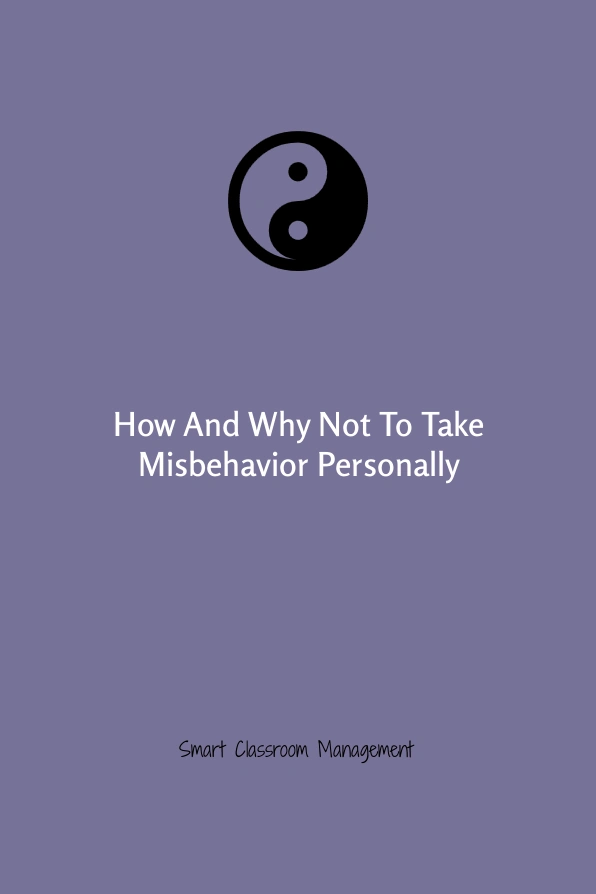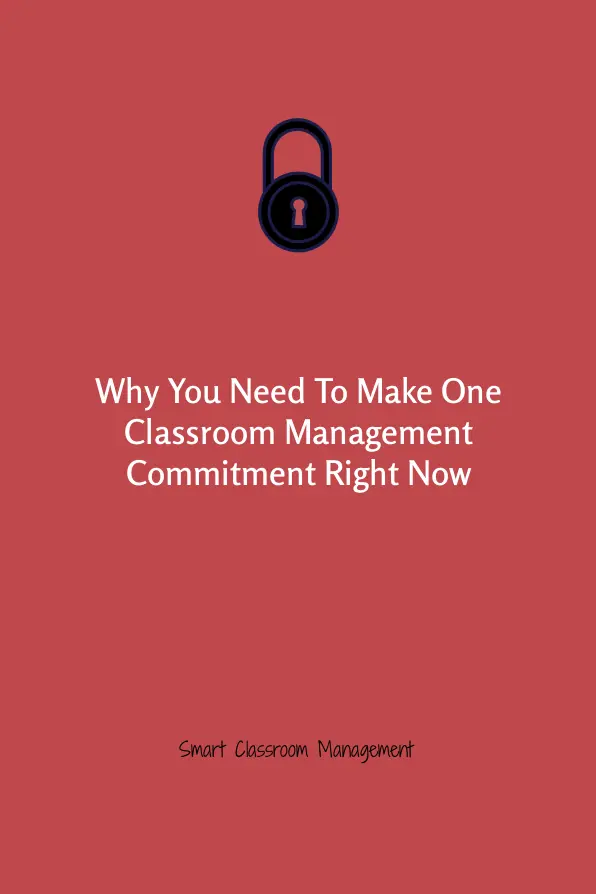I’ve spoken to thousands of teachers about their classroom management struggles. They all have much in common.
I repeat myself a lot.
My advice is “do this and don’t do that.” This is one reason SCM has been successful. Our strategies are straightforward.
I don’t have to theorize or offer hazy suggestions and I never leave anyone confused. I can just say, “You need to talk less and pause more.” They do it and see results, simple as that.
However, there is one area that isn’t so cut and dry. The advice is still simple. But getting teachers to follow it is another story. Oh, they want to, often desperately, but they can’t seem to overcome the wounds to their heart.
The advice is to not take misbehavior personally.
Refusing to allow disruptions, disrespect, and the like to get under your skin makes you infinitely more effective. It also plummets your stress and skyrockets your influence.
The reason teachers have such a tough time with this, however, is because teaching is highly relational. You see the same kids every day. You get to know them and care about them. You spend more time with them than just about anyone else.
This naturally, but dangerously, can make you view them—subconsciously if not willfully—as cohorts, collaborators, teammates, and even friends. This viewpoint causes you to live and die over how they make you feel.
In fact, it triggers an internal voice that continually judges where your students fall on an annoying you/pleasing you continuum.
In order to not take misbehavior personally, you have to change this view. Here’s how:
1. Do only your job.
Happy and successful teachers maintain a clear boundary between their job and the job of their students. Yours is to teach and lead. Theirs is to listen and learn. Never mix them up.
2. Stay on your plane.
Your students are 6, 10, or 16 years old. You’re not on the same mental, emotional, and intellectual plane. Not even close. It’s absurd to get pulled down to their level. They’re kids who don’t know nothin.’
3. Let your plan do the dirty work.
Not just physically, but mentally. Turn the responsibility for misbehavior completely over to your classroom management plan. Let it take the heat. You just follow it like a referee.
4. Step up to respect.
When you show students that they can’t get under your skin, that their misbehavior doesn’t affect you in the least, then they’ll stop trying. Instead they’ll put you on the highest pedestal of respect.
5. Build one relationship.
Here at SCM we believe in building an influential relationship with your class, not individual students. This approach is vastly more effective and ensures you’re creating the strongest and healthiest rapport.
Diapers
If you’re prone to taking behavior personally, then remind yourself every day before your students arrive that you’re their teacher, which requires a very specific type of relationship.
You make the decisions. You define the boundaries. You set the tone and create the culture. You’re an adult with life experience and decades of education.
They were wearing diapers an hour ago.
The lesson is that when there is a clear demarcation of roles, responsibilities, and maturation between you and your class, both parties benefit. They create balance and clarity. Yin and yang.
Yes, once you begin following the advice above it can still take willpower to merely refer to your plan when someone calls out during a lesson or corrects your learned, erudite commentary on the Civil War.
But once you experience the results, once you begin seeing students as they really are, and they see you as the leader rather than collaborator, you’ll realize how silly you’ve been.
If you haven’t done so already, please join us. It’s free! Click here and begin receiving classroom management articles like this one in your email box every week.















+ There are no comments
Add yours